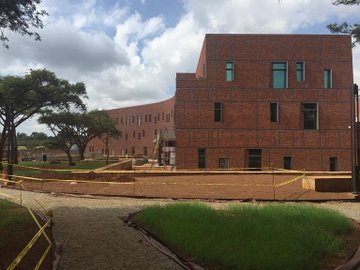The United States has pledged US$470,000 to fight the spread of COVID-19 in Zimbabwe.
As of Friday, March 27, the World Health Organization (WHO) said over 530,000 people have been infected with COVID-19 worldwide and more than 24,000 people have died from the disease — the majority from China. Zimbabwe declared its first case last weekend. Soon after this declaration, Zimbabwe announced two additional confirmed cases and the passing of Zororo Makamba on Tuesday, March 24.
The United States Agency for International Development (USAID) is coordinating with the Government of Zimbabwe, the WHO, the United States Centers for Disease Control and Prevention, and other stakeholders to identify priority areas for investment.
Through this funding, the WHO will help the Government of Zimbabwe with life-saving activities such as preparing laboratories for large-scale testing for COVID-19, implementing a public-health emergency plan for points of entry, and activating case-finding and evidence-based surveillance for influenza-like illnesses.
“This assistance will build on the ongoing investments by the United States in Zimbabwe’s health sector. Since 1980, the United States Government has provided over US$1 billion in health assistance to strengthen health systems, so that Zimbabweans can live longer, healthier lives,” said USAID Mission Director Stephanie Funk.
For decades, the United States has been the world’s largest provider of bilateral assistance in public health. Between USAID and the U.S. Department of State, American taxpayers generously have made available more than $90 billion dollars for health globally since 2009. Because an infectious-disease threat anywhere can be a threat everywhere, the United States calls on other donors to contribute to the global effort to combat COVID-19.
For more than 30 years, the American people, through USAID, have contributed over $3.2 billion in assistance to Zimbabwe. Current projects include initiatives to increase food security, support economic resilience, improve health outcomes, and promote democratic governance.






